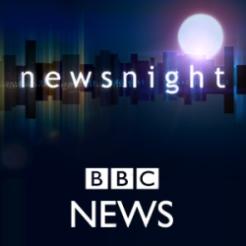Tania Mason is frustrated by the ignorance shown in last night’s BBC investigation that “exposed” the fact that charities sometimes hire private companies to supply them with services.
Last night’s Newsnight “investigation” that “exposed” the fact that charities sometimes hire private companies to supply them with services – in this case face-to-face fundraising agencies – was nothing short of depressing.
It showed just how ignorant the general public – not to mention the national media – are when it comes to understanding how charities work. And just how big an education job we in the sector have on our hands to eradicate that ignorance.
For me, the most stunningly stupid line came from the Bangladeshi student Ray Han, who said he was “shocked” to discover that chuggers were paid. “It’s a job to them,” he said, “but we should not mix job with charity work.”
Good grief. What does he think we should do then, with the 1.6 million people that are currently in paid employment with civil society groups – sack ‘em all? Maybe Mr Han thinks these jobs are ok, but draws the line at those people that work for commercial organisations that supply services to charities. So all the printers, advertising agencies, utility companies, recruitment consultancies, auditors, researchers, and yes, fundraising agencies. Evil, every one of them.
The fact is that the giving of money by a donor to a beneficiary is no longer a two-way exchange. It was once, hundreds of years ago, when those that had gave a few coins or some food directly, face-to-face, to those that had not. But in today’s global, networked, sophisticated society, it is simply not practical, nor effective, for benevolence to operate like this. Instead, making a donation is a three-way deal between the donor, the charity (or the charity’s hired agent, if that's more cost-effective) and the beneficiary. The exchange between donor and charity is effectively an exchange of equals – the donor is hiring the charity to provide a service to the beneficiary on the donor’s behalf. So why shouldn’t the person acting on behalf of the charity – in this case the chugger – be paid a decent wage? Most people would not expect an electricity supplier to provide energy to a multi-million-pound turnover charity for free - so why should fundraising services be provided for free?
Charity has made the transition from individual to industry, but the general public – and BBC “investigators” - still have not. Until they do, programmes like last night’s chugger-bashing “exposé” will continue to stoke the indignant hackles of Middle England shoppers who would rather cross the road than say “no thanks” politely to a fundraiser.









